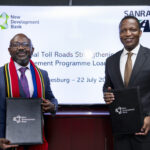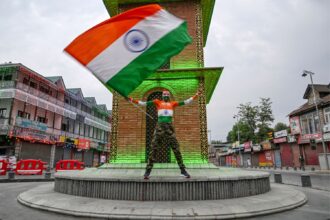As global leaders convened at this year’s World Economic Forum New Champions meeting in Tianjin, the urgency of our shared challenges was unmistakable. From climate risks to digital disruption, no region is immune. Yet amid these headwinds, Africa stands at a crossroads of promise and potential. We are blessed with abundant human talent, vast reserves of critical minerals and renewable energy and youthful dynamism. What we lack, however, is the infrastructure to translate these endowments into sustained growth and shared prosperity.
According to the African Development Bank, Africa must spend roughly US$170 billion each year to build the roads, ports, power plants and digital networks that underpin modern economies. Today, we mobilise barely half that sum, leaving an annual infrastructure financing gap of about US$85 billion. Globally, that shortfall heaves to a staggering half-trillion dollars. It is within this context that the B20 South Africa Finance and Infrastructure Taskforce, led by Sim Tshabalala has been mandated to chart a course towards closing this divide, for Africa and for other emerging regions.
The policy recommendations, to be unveiled at an event in September this year, focus on three core areas. First, we will propose ways to expand the pipeline of investable infrastructure projects. Second, we will outline how to improve access to capital by bolstering the availability, effectiveness and resilience of public, private and philanthropic investment. Third, we will offer draft measures to enhance the circulation of funds between investors, projects and the broader economy, so that the benefits of growth flow swiftly to local businesses and communities.
On the long-term reform front, we advocate for the strategic coordination of infrastructure programmes both within countries and across borders. By prioritising high-impact sectors, starting with clean energy and digital connectivity, we can generate catalytic effects that ripple across manufacturing, health and education. In practical terms, this means aligning national development plans, standardising procurement procedures and harnessing regional institutions to pool resources and share risk.
Complementing these systemic reforms, the policy recommendations we will submit to the G20 will include short-term measures to improve project preparation. We call on governments and development banks to place greater emphasis on rigorous feasibility studies and comprehensive business planning, while streamlining regulatory approvals to slash bureaucratic red tape. Better-prepared projects attract more investors, close faster and deliver returns sooner.
A critical piece of our work at the B20 addresses prudential regulations. Today, many banks and insurers apply punitive capital charges to infrastructure loans, reflecting long-standing concerns about political, currency and construction risks. While sensible safeguards are essential, disproportionately high risk-weights deter the very financing we need. We need a calibrated review of these requirements, linked to internationally recognised standards, to unlock significant latent capital for long-term projects.
Beyond the financing stage, we must ensure that infrastructure spending catalyses inclusive development. Too often, funds trickle slowly from projects to the grassroots. To rectify this, our draft recommendations include tailored financing instruments for small and medium-sized enterprises and incentives for project developers to invest in local skills and technical capacity. When local contractors and suppliers participate meaningfully, projects become more resilient, and communities reap the rewards.
Underpinning every one of the emerging B20 South Africa recommendations is a resolute focus on governance and compliance. Strengthening domestic financial markets, enhancing sovereign credit frameworks and deploying technology for transparency are non-negotiable if we are to boost Africa’s investability. Digital platforms, for example, can track procurement processes in real time, while blockchain-enabled registries can secure land rights and contracts against corruption. Clear legal frameworks and robust enforcement will not only reduce transaction costs, but also give investors the confidence to commit capital for the long haul.
For Asia’s business community, Africa represents both a market of 1.4 billion people and an outsize opportunity to shape tomorrow’s energy, mineral and technology supply chains. Asian institutions have decades of experience in large-scale infrastructure delivery and public-private partnerships. Together, we can co-develop blended-finance models, share regulatory innovations and cultivate intercontinental value chains that benefit producers, consumers and investors alike.
The policy blueprint we will recommend is more than a collection of good intentions. It offers a lucid roadmap, calibrated to the practical realities of emerging economies yet animated by a bold vision: to turn Africa’s endowments into engines of inclusive global growth. By bridging the infrastructure gap, reinforcing governance and mobilising long-term capital, we can unlock Africa’s potential, for the continent itself, and for the world.
Nonkululeko Nyembezi is Co-Chair of B20 South Africa and a global advocate for sustainable industrial and economic development. She participated in discussions on these critical issues at the World Economic Forum’s Annual Meeting of the New Champions in Tianjin, China.













